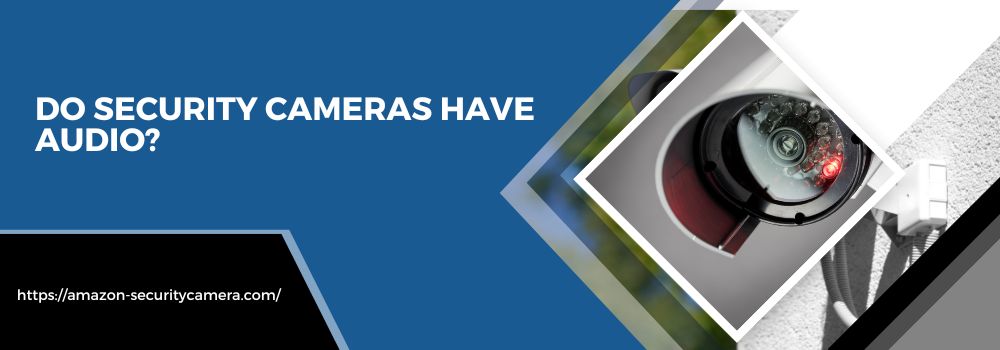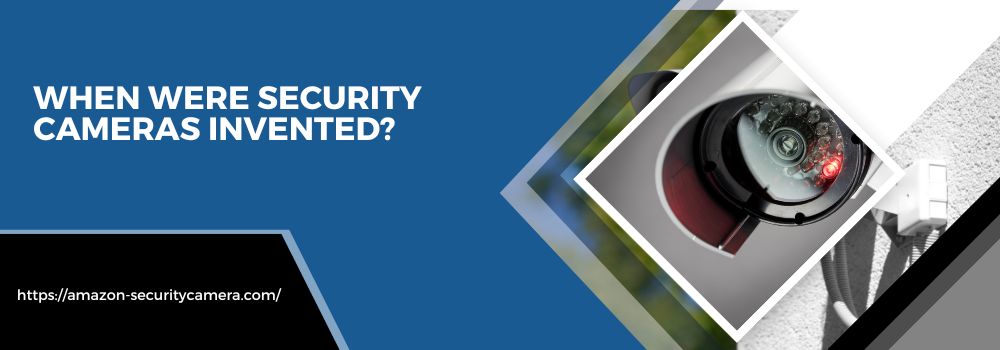Security cameras have become an integral part of safety measures across various settings; from homes and offices to public spaces, these devices provide an extra layer of protection and security. Do security cameras have audio?But the question often arises – do these cameras also capture audio along with video?
While most security cameras are designed to capture visual data, not all of them come equipped with audio capabilities. This largely depends on the specific model and the laws of the region where they are being used. Some cameras may have a built-in microphone allowing them to record audio, while others might only provide visual footage.
It’s vital to note that while audio recording can provide additional information in a security situation, it also raises questions of privacy and legality. Therefore, before opting for a security camera with audio features, one must carefully consider these aspects and adhere to local laws and regulations.
Table of Contents
Actual Functionality of Security Cameras
Security cameras mainly serve for visual surveillance, aiming to protect premises and deter illicit activities. Depending on the specific model, they might have varying features, including audio recording. However, not all security cameras necessarily capture audio data. Models with built-in microphones are capable of recording sounds, which may offer added context to the security footage. Others, however, may be solely dedicated to providing video surveillance, focusing on clear images and broad field-of-view features.
Whether a security camera has audio capabilities also depends upon the technological advancements and the price range of the device. High-end camera models may be equipped with not just audio, but even advanced features like motion detection, night vision, and remote access. On the other hand, basic models might limit their functionality to video recording.
Legal and Ethical Implications of Audio Recording
While the capability to capture audio along with video might seem like an advantage, it brings along its share of legal and ethical implications. The laws surrounding the use of audio surveillance vary by region and are often more stringent than those for video surveillance. Unauthorized audio recording might infringe upon privacy rights, leading to legal repercussions.
Thus, if a user is considering a security camera with audio features, it is paramount to thoroughly investigate local laws and regulations. Before installing any such device, obtaining the necessary permissions and informing all parties involved is wise. Moreover, it’s worth noting that the intended use of these devices should be for enhancing security, not for invading someone’s privacy. So, even if the law permits audio recording, ethical considerations should always be upheld.
Advancements in Audio-Enabled Security Cameras
Technological advancements have opened up a new realm of possibilities for audio-enabled security cameras. With the integration of artificial intelligence and machine learning, these cameras can now distinguish between different types of sounds and alert users accordingly. For instance, a burglar trying to break into a house would trigger an alarm, while harmless noise like a pet’s bark would not.
Furthermore, some models now offer two-way audio communication, allowing users to communicate with whoever is near the camera. This feature can be incredibly useful for home monitoring and remote access purposes. However, it also raises concerns about the potential misuse or abuse of such technology.
As with any technological advancement, there are always ethical considerations that must be taken into account. With audio-enabled security cameras, the potential for invasion of privacy is a primary concern. It is essential to have strict guidelines and regulations in place to prevent misuse and ensure that these devices are used responsibly.
Impact of Audio-enabled Security Cameras on Privacy
Measures to Prevent Misuse of Audio-Enabled Security Cameras
One of the ways to prevent the misuse of audio-enabled security cameras is by implementing strict regulations and guidelines for their use. This could include obtaining consent from all parties involved before installing such devices, limiting the scope of recording to specific areas, and clearly stating the intended use of these cameras.
In addition, it is crucial for manufacturers to prioritize privacy protection when designing and developing audio-enabled security cameras. This could involve incorporating features such as encryption and secure storage of audio recordings, as well as providing users with the option to disable audio recordings if desired.
The Role of AI in Enhancing Audio-Enabled Security Camera Functionality
With the advancements in artificial intelligence (AI) technology, audio-enabled security cameras can now be equipped with features such as voice recognition and sound detection. These capabilities not only enhance the overall functionality of these devices but also raise concerns about potential privacy breaches.
To address these concerns, it is essential for manufacturers to prioritize transparency and user control when implementing AI in audio-enabled security cameras.
The Future of Audio-Enabled Security Cameras: Opportunities and Challenges
The use of audio-enabled security cameras is expected to continue growing in the future due to their effectiveness in deterring crime and providing evidence for investigations. However, this also brings about challenges such as balancing privacy concerns and the need for improved security measures.
As technology continues to evolve, it is crucial for regulatory bodies and manufacturers to work together to address these challenges and ensure that audio-enabled security cameras are used responsibly and ethically. Only through responsible use and advancement can these devices continue to serve as valuable tools in protecting our homes and communities.
Conclusion
Audio-enabled security cameras offer a significant advantage in surveillance and crime prevention. However, their use must be balanced with respect for privacy rights and ethical considerations. Manufacturers play a crucial role in ensuring the responsible development and use of this technology, and it is essential for them to prioritize transparency and user control when implementing AI features. With proper regulation and responsible development, audio-enabled security cameras can continue to enhance the safety and security of our communities in the future. So, it is important for manufacturers and regulators to work together toward a safe, ethical, and advanced future for audio-enabled security.
FAQ
Q#1: How do audio-enabled security cameras work?
Audio-enabled security cameras use built-in microphones to capture sound and transmit it to the recording device. Some models also have advanced AI features that can detect specific sounds or activate audio alerts when certain events occur.
Q#2: Are there any privacy concerns with audio-enabled security cameras?
Yes, there are privacy concerns regarding the use of audio-enabled security cameras. It is crucial for manufacturers to implement features that prioritize user control and transparency to address these concerns.
Q#3: Are there any regulations in place for the use of audio-enabled security cameras?
The use of audio-enabled security cameras may be subject to local, state, or federal laws and regulations. It is important for users to research and comply with these regulations, and for manufacturers to ensure their products meet all necessary standards.
Q#4: Can audio-enabled security cameras be used for criminal investigations?
Yes, audio-enabled security cameras can provide valuable evidence in criminal investigations. However, their use must comply with legal requirements and ethical considerations.
Q#5: What are some of the benefits of using audio-enabled security cameras?
Some benefits of using audio-enabled security cameras include enhanced surveillance capabilities, improved communication and response during emergencies, and potential cost savings compared to hiring security personnel. However, these benefits must be balanced with privacy concerns and ethical considerations.



